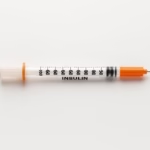Ever wonder if your tattoos mean you can’t donate blood? You’re definitely not alone—it’s a super common worry, and honestly, the rules can seem confusing.

You can donate blood if you have tattoos, but you might need to wait three months after getting new ink. That waiting period depends mostly on where you got your tattoo and how seriously the shop took cleanliness.
Licensed tattoo parlors that use sterile equipment usually let you donate sooner than those sketchy, unregulated places.
Knowing the actual rules about tattoos and blood donation helps you make better choices. Let’s dig into waiting periods, safety stuff, and some myths that might stop people with tattoos from donating.
Key Takeaways
- Most people with tattoos can donate blood if they follow the right waiting periods
- Professional, licensed tattoo shops mean less waiting than unregulated ones
- Safety rules protect both donors and recipients from infections
Can People With Tattoos Donate Blood?

Yes, people with tattoos can usually donate blood. But eligibility depends on how long ago you got the tattoo and whether the shop followed health regulations.
Current Guidelines for Tattooed Donors
Most centers accept donors with tattoos. The Red Cross says tattoos are fine if they meet safety rules.
Immediate Donation Eligibility:
- Tattoos done at licensed, regulated shops
- Single-use, sterile needles only
- Fresh, never-reused ink
Three-Month Wait Required:
- Tattoos from unregulated or unlicensed places
- Uncertain cleanliness or reused tools
- Ink or needles used on more than one person
That three-month wait exists mostly because of hepatitis risks. Even though blood centers test for hepatitis B and C, the tests can’t always catch a new infection right away.
Some folks think tattoos mean you can never donate, but that’s just not true.
Role of Tattoo Age and Healing
The age of your tattoo matters a lot. Tattoos older than 3 to 6 months are usually fine for donation, no matter where you got them.
Fresh tattoos are basically open wounds, which ups your infection risk. Healing takes a few weeks, sometimes longer.
Healing Timeline:
- Week 1-2: Scabbing and peeling begin
- Week 3-4: Deeper layers start to heal
- Month 2-3: Full recovery for most people
Your immune system works hard during healing, which can affect your blood quality for a bit. That’s why centers want you to wait until the skin’s totally healed.
If you got your tattoo at an unlicensed shop, you still have to wait three months, even if it looks healed. They’re just playing it safe for everyone.
Impact of Tattoo Studio Licensing
Whether your tattoo shop has a license makes a big difference. Licensed studios stick to strict health rules and get inspected regularly.
States Without Tattoo Regulation:
- District of Columbia
- Georgia
- Idaho
- Maryland
- Massachusetts
- New Hampshire
- New York
- Pennsylvania
- Utah
- Wyoming
If you get a tattoo in one of these states, you have to wait three months before donating. Even if the shop looks spotless, the rules still apply.
State-regulated tattoo shops always use new needles and fresh ink, and they clean everything between clients. Inspectors check up on them, and shops have to keep records of all their cleaning and equipment maintenance.
Cosmetic tattoos like microblading count, too. If you get them at a licensed place, you’re usually good to donate right away. Check with your local center if you’re unsure.
Waiting Periods After Getting a Tattoo

Blood donation centers usually want you to wait 3 to 12 months after a new tattoo. The exact time depends on local rules and where you got your ink.
Typical Deferral Times by Country
United States has different rules depending on tattoo shop regulation. If you got your tattoo at a state-regulated shop, you can usually donate right away.
The Red Cross says you need to wait three months if you got your tattoo in an unregulated state. Those include DC, Georgia, Idaho, Maryland, Massachusetts, New Hampshire, New York, Pennsylvania, Utah, and Wyoming.
Some centers want you to wait a full 12 months if the shop wasn’t regulated. There’s a bit of variation, so always double-check with your local place.
Other countries can be stricter. Some require 3-6 months no matter what, and a few ban tattooed donors for life (which seems a bit much, honestly).
Why Waiting Periods Are Required
Waiting periods help stop hepatitis from spreading through blood donations. Hepatitis B and C can sneak in through dirty needles or ink.
Blood tests can’t always catch hepatitis right after infection. The virus needs time to show up—this is the so-called “window period.”
Dirty tattoo equipment is the main problem. State-regulated shops follow safety rules to avoid this, but not everyone does.
All blood gets tested for hepatitis B and C. But since tests aren’t foolproof, waiting just adds another layer of safety.
What to Do If Recently Tattooed
If you just got a tattoo, wait out the required time before donating. Call your local blood donation center to be sure about the rules—they can vary.
During the wait, keep an eye on your tattoo. If it gets red, swollen, or leaky, see a doctor—don’t risk it.
Once the waiting period’s up, go ahead and book your blood donation. Bring ID, and be honest about your tattoo history during screening.
Donation centers will ask about recent tattoos. Let them know when and where you got yours so they can check if you’re good to go.
Eligibility Criteria for Blood Donation With Tattoos

You can donate blood if you have tattoos, but you’ll need to meet some health and timing requirements. The main things? Basic health, waiting periods after new tattoos, and a few medical conditions that can rule you out.
Health and Age Requirements
Every donor, tattooed or not, has to meet health and age standards. Most places take donors between 16 and 75, but some have their own age limits.
You usually need to weigh at least 110 pounds. That’s just to make sure giving blood won’t make you feel awful.
Basic health criteria:
- Normal blood pressure
- Enough iron in your blood
- No active infections
- Generally feeling good on donation day
They’ll check your temperature and pulse before you donate. It’s standard for everyone.
Tattooed folks go through the same health checks as anyone else. The tattoo itself doesn’t change any of these rules.
General Disqualifications and Ineligibilities
Some medical conditions mean you can never donate blood, tattoos or not. These rules keep everyone safe.
You can’t donate if you have:
- HIV or AIDS
- Hepatitis B or C
- Certain cancers
- Heart disease
- Blood clotting problems
Eligibility is really about your overall health, not your tattoos. Most tattooed people are totally fine to donate.
If you’ve ever used needles for illegal drugs, you’re permanently ineligible. That’s non-negotiable.
Traveling to certain countries can also put a temporary pause on your eligibility. Donation centers keep updated lists of those places.
Factors That May Affect Eligibility Temporarily
Timing and location of tattoos are the biggest temporary issues. If you just got a tattoo, you’ll need to wait so you don’t risk spreading infection.
Waiting periods (roughly):
- Licensed, regulated shops: No wait
- Unregulated shops: 3-12 months
- DIY or home tattoos: 12 months
Tattoo parlors in unregulated states mean a longer wait. These include Georgia, Idaho, Maryland, Massachusetts, New Hampshire, New York, Pennsylvania, Utah, and Wyoming.
Got a recent piercing? That can also delay things. If the piercer used single-use equipment, you’re good; otherwise, it’s a three-month wait.
If you’re sick with something like a cold or flu, just wait until you feel better before donating.
Risks and Safety Concerns for Tattooed Donors
Blood centers worry most about infections like hepatitis that can hitch a ride on dirty tattoo needles or ink. The big risk is bloodborne diseases that might not show up right away in tests.
Transmission of Bloodborne Diseases
The tattooing process opens the skin, making it easier for infections to get in. If tattoo artists use contaminated needles or equipment, they can pass serious diseases from one client to another.
Hepatitis B spreads quickly through infected blood. This virus targets the liver and sometimes leads to long-term health issues.
Blood donations always get tested for hepatitis B, but sometimes early infections slip past the tests.
Hepatitis C passes from person to person through blood, too. Like hepatitis B, it can quietly harm the liver for years.
The virus can hide in someone’s blood for months before tests pick it up. That’s a little unsettling, honestly.
HIV transmission through tattooing doesn’t happen often, but it’s not impossible. Shared needles or dirty equipment are the main culprits.
Blood banks screen all donations for HIV, but there’s always that tricky window period where new infections just aren’t detectable yet.
Importance of Sterile Tattooing Practices
Professional tattoo shops stick to strict safety rules to keep infections at bay. Clean habits protect both clients and anyone who might get their blood later on.
Single-use needles make a huge difference—each client gets a fresh, sterile needle that goes straight in the trash after use.
Reusing needles? That’s how blood from one person can end up in another. No thanks.
Sterile ink matters, too. Tattoo shops should never dip needles into shared ink containers.
Every client deserves their own fresh portion of ink. Double-dipping is just asking for trouble.
Good shops sterilize reusable equipment with autoclaves, blasting away germs with high heat and pressure.
They also clean surfaces with approved disinfectants to wipe out blood and other nasties.
Licensed tattoo artists train in infection control, learning how to keep things safe and clean for everyone.
Role of Regulated Facilities in Reducing Risk
State regulation of tattoo shops sets safety standards that help protect public health. Regulated shops have to follow rules about cleanliness and equipment.
Most states make tattoo shops get licenses and pass inspections. Health departments check that shops sterilize tools and dispose of waste properly.
Unregulated states are a different story. Right now, ten states and DC don’t regulate tattoo shops at all—Georgia, Idaho, Maryland, Massachusetts, New Hampshire, New York, Pennsylvania, Utah, and Wyoming are on that list.
If you get a tattoo in one of those places, you’ll face a longer wait before you can donate blood.
Blood banks ask for a three-month wait after getting inked in an unregulated state.
Regulated shops lower infection risks by following mandatory safety steps. They use sterile needles, fresh ink, and proper cleaning for every client.
Myths and Facts About Blood Donation and Tattoos
People often think having a tattoo means you can never donate blood. That’s just not true.
In reality, there are temporary waiting periods and safety rules to protect donors and recipients alike.
Common Misconceptions
The biggest myth? Tattooed people can’t donate blood at all. This idea stops a lot of folks from even trying to donate.
Other false beliefs:
- Tattoo ink stays in your blood forever
- All tattooed people get banned from donating
- Visible tattoos automatically disqualify you
- The tattoo’s location changes your eligibility
Some people worry that tattoo ink somehow contaminates their blood for life. But the ink actually sits in the dermis layer of your skin—it doesn’t float around in your bloodstream or mess with blood safety.
Others skip tattoos because they want to keep donating blood regularly. That’s based on old info about donor restrictions that aren’t really true anymore.
Scientific Truths Behind the Regulations
The waiting period exists because tattoo needles cause tiny wounds, which could let bloodborne infections sneak in. Sometimes, those infections don’t show up on blood tests right away.
Main safety worries:
- Hepatitis B and C transmission
- HIV exposure from dirty tools
- Window period before infections show up in tests
Most blood banks want a three to six month wait after a tattoo. That gives enough time for any infection to become detectable.
Licensed tattoo parlors that use the right sterilization steps cut infection risks way down. In some places, the wait is shorter—or even nonexistent—if you got your tattoo at a regulated shop.
The deferral isn’t forever. Once you’ve waited it out and meet the other requirements, you can donate blood if you want.
Frequently Asked Questions
Most people with tattoos can donate blood, as long as they follow the right waiting periods and safety steps. The big issues are infection risks and local regulations.
What is the waiting period for donating blood after getting a tattoo?
It depends on where you got your tattoo. If it’s from a state-regulated shop that uses sterile needles and single-use ink, you can usually donate right away.
Got tattooed in an unregulated state? You’ll need to wait three months. The list of unregulated places includes DC, Georgia, Idaho, Maryland, Massachusetts, New Hampshire, New York, Pennsylvania, Utah, and Wyoming.
Some organizations just stick with a three-month wait for everyone, no matter where you got inked. That way, they cover all the bases for infection detection.
Are there any risks associated with donating blood if you have tattoos?
The main risk is hepatitis from dirty tattoo equipment. Hepatitis can pass from donors to patients through transfusions.
Blood donations get tested for hepatitis B and C, but early infections can sneak past the tests.
Fresh tattoos from unregulated shops carry a higher risk, which is why the waiting periods exist.
Is tattoo ink considered a contaminant for blood donations?
No, tattoo ink isn’t actually a problem for blood donations. The real issue is infection from unclean tattooing, not the ink itself.
Modern inks from regulated shops meet safety standards. The ink stays in your skin, not your blood, so it doesn’t affect donation safety.
Blood banks worry about bacteria and viruses that could get in through dirty needles. Good tattooing practices take care of that.
How do different regions or countries regulate blood donation from tattooed individuals?
Blood donation rules change depending on where you live. Each country sets its own policies based on health standards and local infection rates.
In India, you can donate blood if your tattoo is older than three months. That waiting period is meant to lower infection risks.
Some countries play it safe with longer waits, while others care more about whether the tattoo shop followed safety rules.
Europe and North America have different approaches. Travelers should always check the local rules before donating.
What are the guidelines for tattooed individuals donating plasma?
Plasma donation guidelines mostly match blood donation rules for people with tattoos. Most plasma centers stick to the same waiting periods and shop regulations.
Commercial plasma centers sometimes have their own policies, and they often do extra health screenings.
Since plasma donors can give more often, centers stay extra cautious about infection risks. If you got a fresh tattoo from an unregulated shop, you’ll usually need to wait three months.
Some plasma centers let you donate right away if your tattoo came from a licensed shop. It’s best to call your local center and double-check their rules.
Are people with tattoos allowed to donate organs, similar to blood donation policies?
Organ donation policies for people with tattoos are actually a bit more relaxed than blood donation rules. Most of the time, tattoos won’t stop someone from donating organs.
Medical teams look at each potential donor as an individual. They focus more on the person’s overall health, cause of death, and the condition of their organs than on whether they have tattoos.
Fresh tattoos can sometimes make doctors pause and check for recent infections. But honestly, if someone’s life is on the line, that risk often seems pretty minor.
If you’re a registered organ donor, don’t stress about your tattoos getting in the way. In the end, doctors care most about what the recipient needs and if the organs are healthy enough to use.



